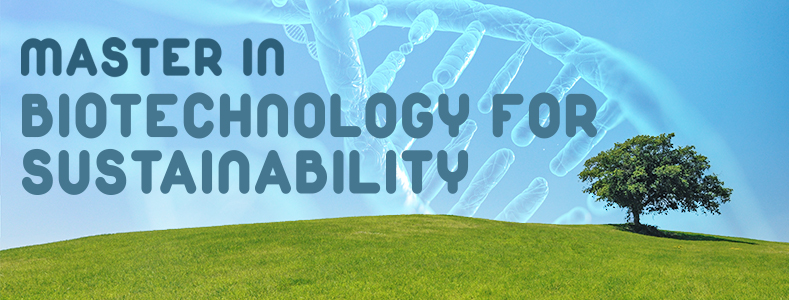Curricular Units and Professors

| Presentation | Applications | Objectives | Curricular Structure | Dissertation | Curricular Units | Contacts | Versão PT |
Global changes and sustainability
General introduction to the disciplines taught throughout the Masters course. Updated information on the situation of agriculture and forestry at national and global level, and characterization of the Portuguese agro-forestry reality, its future challenges, opportunities and major risks.
Plant nutrition and Symbiotic interactions
Fundamental notions on plant nutrition, especially the nitrogen in non-leguminous plants (annual / herbaceous and perennial / fruit trees) and leguminous plants, as well as the main methods for determining the nutrients requirements.
Environmental and industrial microbiology
Study of the metabolic diversity of prokaryotic (Bacteria and Archaea) and eukaryotic (Fungi) microorganisms, microbial communities and ecosystemsin natural environments as well as in the application of microbial biotechnology to the degradation of pollutants or the eco-efficient production of bio-based products, bioenergy and materials.
Plant stress biology
Follow up on the introductory module on “Global Changes and Sustainability”, it will provide basic knowledge on how plants are affected by the environmental challenges derived from modern society needs and habits and how they cope with these challenges.
Biocatalysis for sustainability
Fundamental understanding of enzyme structure-function relationships and methods and strategies for recombinant enzyme production, purification, characterization and engineering, using rational and directed evolution approaches. An overview of the different enzyme classes coupled to the catalyzed chemical reactions will be provided as well as the design of multi-enzymatic systems for production of fine chemicals, pharmaceuticals, and other compounds and application for synthetic biology purposes.
Genome-scale technologies biostatistics and bioinformatics
Planning and application of genome-scale studies, e.g. genome sequencing, transcriptomics or proteomics, and identification of the appropriate analysis tools and statistical tests to the chosen approach.
Laboratory technics
Both theoretical and experimental approaches will be used to give students basic knowledge on laboratory techniques and in house available technologies.
Plant biotechnology for agriculture and forestry
Approach to plant biotechnology and critical analyses of economic, legal, sociological and ethical issues surrounding the application of plant biotechnology.
Bioproducts, biomaterials and bioenergy
Main existing bioproducts and biofuels and the different types of natural and renewable materials. Concepts of biorefinery and their application in the context of energy production. Catalytic processes for the recovery of renewable resources.
Clean bioproducts separation
Classical procedures and emerging technologies for the separation and purification of bioproducts, considering the various aspects leading to sustainability. Case studies in the development of bioproducts, biomaterials and waste recovery.
Bio- and chemical-remediation
Bio- and Chemical-remediation, and aspects of bioremediation, phytoremediation, catalytic photodecomposition and oxidation, pollutants analysis and monitoring, industrial ecology and ecotoxicity.
Ethics in biotechnology
Philosophical basis of ethics and bioethics, and the methods to apply moral reasoning to ethical dilemmas resulting from the innovation brought by biotechnology.
Bioentrepreneurship
Value creation for biotechnologies, bioproducts and bioservices.
Laboratory rotations
Each student must perform three lab rotations, accompanied by one of the discipline teachers they have chosen. The students will work on mini-projects in each of the rotations and will have to apply knowledge acquired in the curricular units, particularly the skills acquired in the discipline of laboratory techniques.
Interdisciplinary seminars I and II
Contact, learn and discuss current issues and projects on plant and microbial biology and biotechnology, through participation in seminars presented by national and international researchers conducting research of excellence in these scientific areas.
Thesis project planning
Identification of a research object, setting specific objectives and framing them in time. Interaction with other researchers to define a research plan, that will be written, presented and defended.
Optional
Students can chose a curricular unit of their choice, in or outside Universidade Nova de Lisboa, during one of the semesters of the master. The UC should have at least 3 ECST.
Master thesis
Development of a research project in the scientific areas of Plant and Microbial Biology and Biotechnology and Sustainable Chemistry. Students will learn how to conduct a research project and how to interpret and present their results.
Each student will choose an internal thesis advisor among the teaching staff and may choose a co-advisor in the case of the realization of its dissertation in an institution different from ITQB NOVA.







